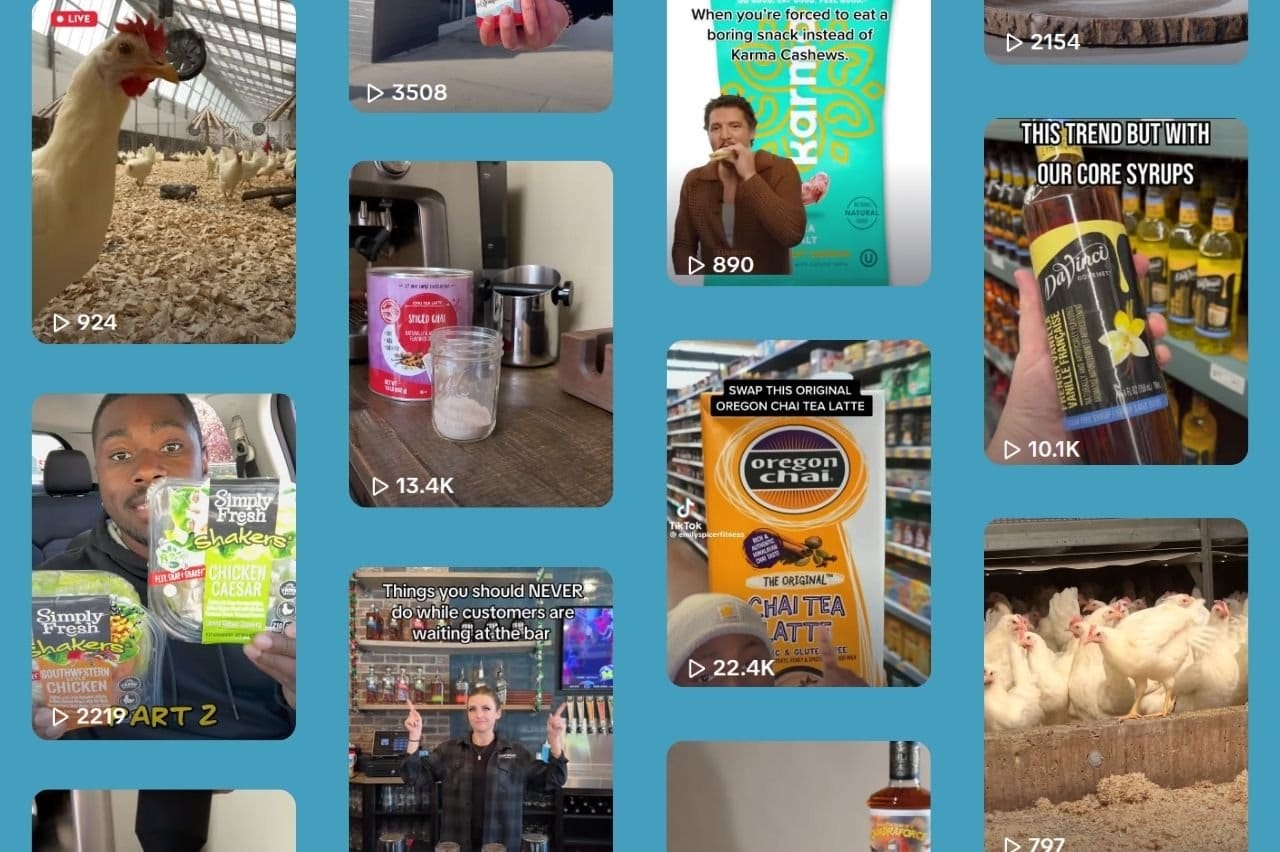Ethical Marketing in Food & Beverage: Why Positive Change Can Be Profitable

Doing the right thing is officially good for business
The food and beverage industry’s marketing influence has shaped consumer eating and purchasing habits for generations.
Today, as consumers embrace health-conscious and environmentally-friendly lifestyles, brands face an unprecedented opportunity to align profitability with purpose.
Because it’s no longer considered a ‘plus’ when brands exhibit ethical marketing practices. It’s now considered mandatory by most people.
Market data consistently shows that ethical practices don’t just feel good—they drive bottom-line growth, with conscious consumers willing to pay premium prices for products that align with their values.
So stop assuming that ethical marketing practices will negatively impact your bottom line.
The Evolution of Marketing in the Food & Beverage Industry
Marketing has always influenced consumer choices and shaped cultural norms around eating habits. It’s not just about what tastes good..
Today’s evolved marketplace offers a compelling proposition: brands that prioritize transparency and health don’t just win consumer trust—they command higher margins and enjoy stronger customer loyalty.
Studies show that 34% of consumers remain loyal to ethical brands. That’s a MASSIVE market segment. They’re willing to pay more for products that make a positive impact.
And consumers are leaning on ethical brands more than ever – now that social media platforms no longer lookout for consumers.
Marketing’s Power as a Profit Driver and Force for Good
Strategic Targeting for Maximum Impact and Returns
Modern marketing campaigns deliver various benefits to both consumers:
- Increases access to nutritious foods while expanding market share in underserved communities
- Celebrates authentic cultural foods with premium, healthy ingredients that command higher prices
- Makes fresh options more accessible while building brand loyalty
- Uses health education to empower consumers and create lasting customer relationships
- Leverages digital marketing (and SMS marketing) to connect health-conscious communities while reducing acquisition costs
Information Management and Packaging Innovation
Progressive companies are discovering that transparency pays dividends.
Consider the following a food and beverage brand’s roadmap to packaging products in a way that maximizes both revenue and societal impact:
Label Design Excellence
- Clear ingredient lists that build trust and justify premium pricing
- Prominent display of nutritional benefits that drive purchase decisions
- Intuitive serving size information that increases consumer satisfaction
- Authentic imagery that reduces returns and complaints
Information Clarity
- Easy-to-understand nutritional facts that increase purchase confidence
- Evidence-based health benefits that support higher price points
- Clear portion guidance that improves customer satisfaction
- Supply chain transparency that justifies premium positioning
- All product information should be readily available on social media
The Distribution Chain’s Profitable Role in Progress
Distributors and retailers are finding new revenue streams through ethical practices:
Product Selection and Promotion Excellence
- High-margin inventory choices that prioritize health and sustainability
- Partnerships with premium, mission-driven brands
- Ethical sourcing standards that reduce risk and increase value
- Leadership in transparent labeling that builds customer loyalty
Community Education and Engagement
It’s not just about the product. Distributors are building valuable brand equity through education:
- Interactive workshops that create brand advocates
- Cooking demonstrations that drive product sales
- Label reading guides that increase customer confidence
- Health events that generate qualified leads
Transforming Brands and Society Through Ethical Marketing: The Revenue Impact
Transparency Builds Trust and Market Share
Modern consumers don’t just appreciate transparent brands—they pay more for them:
Clear Communication
- Ingredient transparency that justifies premium pricing
- Nutritional information that drives health-conscious purchases
- Sourcing narratives that support higher margins
- Environmental impact insights that attract conscious consumers
Digital Engagement
- Behind-the-scenes content that reduces marketing costs
- Production videos that justify premium positioning
- Supplier stories that build brand value
- Sustainability reporting that attracts investors
Product Innovation Excellence
Here’s how ethical marketing drives the development of premium products:
Ingredient Innovation
- Natural alternatives that command higher prices
- Clean formulations that attract health-conscious buyers
- Whole food ingredients that justify premium positioning
- Nutritional optimization that increases perceived value
Packaging Evolution
- Sustainable materials that command price premiums
- Clear nutritional communication that drives sales
- Intuitive portion guidance that increases satisfaction
- Environmental impact transparency that builds loyalty
The Path Forward: Why Mission-Driven Marketing Is WILDLY Profitable
Implement Ethical Marketing Excellence
- Authentic communication that reduces customer acquisition costs
- Transparent sourcing that justifies higher prices
- Nutritional education that builds brand equity
- Environmental stewardship that attracts premium buyers
Measuring Success Across Both Bottom Lines
Today’s most successful food & beverage brands obsess over the following metrics:
Impact Measurements
- Health outcomes that drive repeat purchases
- Environmental benefits that justify premium pricing
- Community engagement that reduces marketing costs (includes social media)
- Educational effectiveness that builds brand value
Brand Trust Indicators
- Transparency achievements that increase market share
- Consumer loyalty metrics that reduce acquisition costs
- Community impact that drives word-of-mouth marketing
- Sustainability leadership that attracts investment
The Profitable Future of Ethical Marketing
The food and beverage industry is discovering that doing good is good business… That doing the right thing for society and the right thing for one’s company often means the same thing.
Brands that embrace ethical marketing aren’t just building trust—they’re building more profitable businesses. Market data shows that ethical brands consistently outperform their conventional counterparts, with higher margins, stronger customer loyalty, and lower acquisition costs.
Success in today’s market comes from understanding that ethics and profits are perfectly aligned. Companies that embrace transparent practices aren’t just doing the right thing—they’re positioning themselves for premium pricing, stronger customer relationships, and sustainable competitive advantages.
The numbers tell the story: ethical marketing delivers higher margins, stronger growth, and more valuable customer relationships. As health and fact-conscious consumers increasingly dominate the market, brands committed to transparency, health, and sustainability are capturing the lion’s share of category profits while building a better food system for everyone.
Let this blog be your guide to profitable, purposeful growth.


